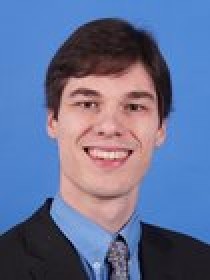
Field Robotics Center Seminar
July

12:00 pm to 1:00 pm
Event Location: GHC 2109
Bio: Bastian Schürmann is a PhD candidate at the Institute of Robotics and Embedded Systems at the Technical University of Munich, Germany. There he works in the Cyber-Physical Systems group with Professor Matthias Althoff. His research focuses on obtaining controllers with high performance and formal guarantees for safety-critical systems. This is achieved by combining methods from control and optimization with reachability analysis. Application areas include autonomous driving and human-robot interaction.
Bastian received his B.Sc. in Electrical Engineering from the University of Kaiserslautern in 2012. Parallel to completing a M.Sc. degree in Engineering Cybernetics at the University of Stuttgart, he finished an additional M.Sc. in Electrical Engineering at the University of California, Los Angeles under a Fulbright Fellowship in 2014. During this time he worked in the group of Professor Paulo Tabuada on correct-by-construction controller design.
Abstract: A new control method is presented which solves reach-avoid problems by interpolating optimal solutions using convex combinations. It also provides formal guarantees for constraint satisfaction and safety. Reach-avoid problems are important control tasks, which arise in many modern application areas, including autonomous driving and robotic path planning. By computing the optimal input trajectories for finitely many extreme states only and combining them using convex combinations for all states in a continuous set, we obtain an efficient control policy. Moreover, our approach has very low online computation complexity. Thus it is applicable for fast dynamical systems. Iterating through this approach leads to feedback control and thereby to robustness and stability. Therefore, it combines the advantages of optimal open-loop control and robust closed-loop control. We consider this novel control approach for nonlinear systems affected by disturbances. Our approach is formal and provably correct. We demonstrate the new control method for a control problem in automated driving and show the advantages compared to classical control methods.